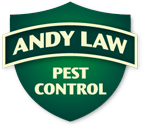
Is Your Hen Run Safe from Stoats?
This is a risky time of year for many. As temperatures drop and ice forms on surfaces, there is more chance of slipping and suffering a nasty fall. However, the winter months bring risks to our animals too – and for some, the risks come from unlikely sources.
Hen runs might seem sturdy enough to last the winter, providing snow isn’t allowed to build up on solid surfaces, making them too heavy to withstand the weight. Snow isn’t the biggest risk though – that comes from stoats and mink. You may not be able to tell them apart (and to be honest, it makes little difference if you can). The important thing to remember here is that if you have hens in your garden, you must make sure your hen run is solid enough to withstand entry by stoats and mink.
How solid is your run?
This is an important question to get an answer to. If you know it has seen better days, be prepared to replace it before stoats find a way in to grab your chickens.
It is wise to check the condition of your run following a stint of bad weather too. Melting snow sitting on the roof causes rot and the whole thing will fail faster than it would otherwise do. Similarly, high winds can cause problems, so check the solidity of the run following a storm. Do this regularly throughout the winter to keep an eye on it.
The right size mesh is key to success
Mesh on its own is not enough to prevents stoats and mink from getting into the run. Make sure it is small enough to prevent access. It should also be buried in the ground rather than starting at ground level. Stoats are happy to use their sharp claws to do a spot of digging, so make life hard for them by putting a barrier in their way underground too.
Check for gaps
How big does a gap need to be to allow a stoat through? Just an inch. If you see any gaps anywhere in your run measuring that or more, be quick to sort them out and fill them in.
It is possible to set traps to kill stoats if you wish. However, since it is difficult to tell stoats, mink, and even weasels apart, it makes sense to call on a pest control expert to handle this part of the job for you. They’ll identify what you are up against.
